Physical Education
Love, Joy, Respect and Excellence.
PE (Physical Education)
In P.E. we teach children to reach their full potential physically, and have a desire to lead a healthy and active lifestyle.
They learn to respect the skills and attributes which make an excellent sportsperson, and their ability to transfer these into their everyday lives and in becoming great citizens.
Teaching of P.E. at Stanground St John’s aims to develop children who understand the importance of exercise and a healthy diet to improve their health, both physically and mentally. We strive to ensure that our pupils can flourish in a range of different physical activities, and that this becomes a part of their future lives.
We believe that children at Stanground St John’s will leave school equipped with the skills to participate in team games and group situations; will accept losses and be gracious in defeat and have the knowledge and understanding, to lead a healthy lifestyle, and making appropriate choices.
At Stanground St John’s, our P.E. curriculum is planned to provide opportunities for children to practise a range of skills through a variety of different sports and situations; alone, in small groups and in teams. Sequences of lessons are planned to provide progression, differentiation and depth of learning. The P.E. curriculum and planning is developed and shared to ensure that both class teachers and Sports Coaches are teaching a broad range, avoiding crossovers of taught skills and activities.
Children are given opportunities in P.E. and through extra-curricular sports to develop skills and teamwork in order to compete in a variety of competitive and non-competitive sports within our local area.
Staff have opportunities to work alongside other professionals to further develop their knowledge and practice e.g. through sports parnterships and by teaching alongside experienced sports coaches from local sporting foundations such as the Peterborough United Foundation and the Youth Development Project.
The dangers of drugs, smoking and alcohol are covered with children in Key Stage Two through carefully planned and sensitive discussions in the classroom.
How and When is P.E. taught?
All children receive two hours of taught P.E. weekly. One hour is delivered by the class teacher, and the second hour is delivered by an experienced P.E. coach.
Swimming
Years 4, 5 and 6 all have a full term of swimming during the academic year. Year 5 pupils will start their swimming lessons at the end of the Summer Term. This is then continued when they return to school as Year 6 in the September. Any year 6 pupils who do not achieve 25m during the Autumn Term, will have intensive support during the Summer Term.
Swimming lessons account for one hour of P.E. per week, therefore these classes will only receive one additional hour of P.E. during the term that they are swimming. Swimming is also assessed using the same system as all other areas. This information is passed through school with each class to inform future class teachers of the children’s achievements. Parents are also informed of their child’s sporting achievements in their end of year report.
Early Years Provision – ‘Physical Development/Expressive Arts’
In the Early Years, children focus primarily on ‘Fundamental Movement Skills’. Detailed planning and continuous provision ensures that children have access to opportunities where they are able to develop fine and gross motor skills, and express themselves through music and dance, both indoors and outdoors. This is alongside two hours of structured P.E. Children are also encouraged to make healthy choices and are taught life skills such as dressing and undressing independently.
IMPACT
Our P.E. Curriculum is high quality and has been carefully planned to ensure that children are accessing developmentally appropriate skills through a broad range of activities and sports. Progress in P.E. is measured through termly teacher assessments of the children’s holistic development, using our schools ‘Measures of Attainment and Progress’ tracker. The areas we assess are;
- Physical
- Personal
- Cognitive
- Health
In addition to this, we measure the impact of our Science curriculum through the following methods:
- A reflection on the standards achieved against the planned outcomes;
- An end of year celebration which demonstrates the progression of achievements across the school;
- Pupil discussions about their learning.
